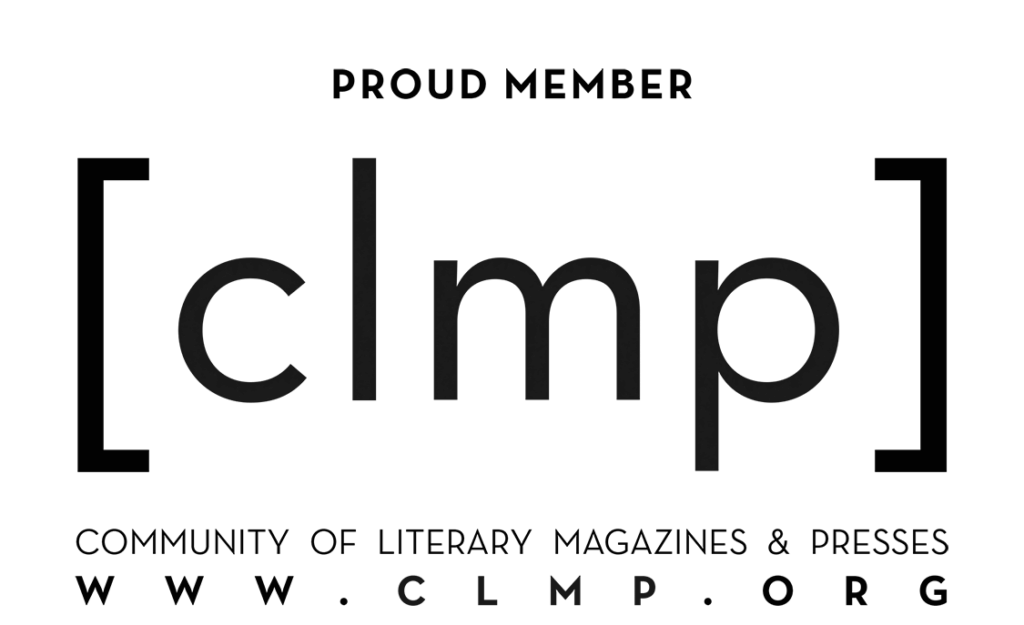It was the second of June, two-thousand-and-two. Cal Jacobs sat in an uncomfortable rolling chair made of plastic and polyester, staring out the tenth floor window of his high-rise office building, wishing he was anywhere other than right there. The floor was abuzz with the ringing of phones and the corresponding answering by very important businessmen who had very important business to do and didn’t hardly have time to waste picking up the phone so they would wear a little phone attached to their ear and talk loudly so that everyone knew they were on a very important business phone call, discussing very important business. Unfortunately for Cal, he was not one such very important businessman, so he sat in his rolling chair of plastic and polyester, the dull blue glow of his computer monitor slowly giving him his daily migraine, putting off his morning’s work for as long as possible.
Cal was prone to daydreaming, the bitter sort that makes a person zone out so entirely that each snap back to reality is a biting slap to the face. It was during one such zone-out that he was imagining his life in zero gravity, as if he could fly through the skyscrapers with a brilliant effortless flow past hundreds of dark shiny windows that hid well-furnished offices of underutilized overpaid executives and threadbare cubicles of underpaid overworked drones. He glid past them with magnificent ease, fingers dragging lightly on the windows outside, leaving behind his fingerprints as the record of his flight, as proof that he himself had floated through the city without the burden of gravity or of office work or reality. And the drones and executives alike would flock to the windows at the unbelievable sight, hearts ablaze with equal parts envy and encouragement, wishing desperately for this sort of freedom themselves yet living an unreal vicarious fantasy through him. The summer wind would whip at the back of his shirt and flow through his hair, and the sun would warm his face and he would be free.
But he wasn’t free. In fact, his Manager Paul Freedman (Senior Manager Level III Six-Sigma Green Belt Certified Scrum Master Tier II) was standing right behind him, watching the thousand-mile gaze of Cal Jacobs, and truly not concerned about the glassy look in his eyes, but concerned about the fact that such a gaze was not directed at the computer screen on which it certainly should have been, given that Cal Jacobs was currently at his desk and the company was currently paying him a rate of twenty-two dollars an hour before tax and yet he was providing no benefit–economic or synergistic or logistic–to the company. Paul Freedman leaned forward with an outstretched hand, middle finger and thumb pressed together and *snapped* loudly next to Cal’s ear.
In that moment Cal was no longer in zero gravity. He was very much in the regular depressing pull of 9.8 m/s^2, made exceptionally more depressing by the dull yellow glow of the overhead fluorescents and the expectant face of Certified Scrum Master Paul Freedman staring at him. Cal spun around in his plastic and polyester rolling chair to face him.
“Hi,” said Cal Jacobs, eyes still adjusting.
“Hi,” said Paul Freedman, eyes trained on the subordinate who was at this moment not fully utilizing the output of productivity that a good American worker should.
Paul stared at him with a calm intensity. A look that said if you don’t get back to work I’m going to kill you. But he did it with the soft passive aggressive half-smile people in the business world often wear. Wordlessly, Cal understood. He nodded a few times, eyes hitting the floor and then spinning back in his plastic and polyester rolling chair. As he faced the computer, he heard the shifting suede of Paul’s slacks and suit jacket as the Certified Scrum Master walked back to his air-conditioned office and back to figures and presentations and meetings that were far too important for Cal to know about, let alone understand.
Cal Jacobs did his best to land somewhere between half-assing and full-throttle and ended up right around three-quarter-assing the rest of his day. Which, in his book, is very productive. He ran reports on state-of-the-art software that would be rendered obsolete in two years when the next version released and he would have to re-learn the software just in time for it to be made obsolete again on the next release. Some days that’s all Cal Jacobs would do–run reports. He ran reports on Earnings Before Interest, Taxes, Depreciation, and Amortization (EBITDA) for Janet Markus in the Accounting department, who he’s pretty sure has never read a single one of his reports; he ran reports on possible leads with forecasted likelihood of conversion and contact attempts for Mark Janus in the Sales department, who he’s pretty sure has read every single one of his reports aggressively.
His job wasn’t difficult by any means, but it was tedious. It was that sort of tedium that at many points made him want to quit his job and move back home with his Grandma–who although feeble and on a limited pension, could make it work for the two of them. That was the kind of woman she was, always taking care of everyone else, no matter what. Cal could do it, really, just quit his job and leave the city and go back to rural Tennessee where everything moves slow and sweet like molasses. He had no family here, no children, not many friends either–but through no fault of his own. Cal was a perfectly agreeable, normal person, he was simply soft-spoken and prone to bouts of intense daydreaming that can be quite off-putting to strangers and potential new friends.
After Cal Jacobs ran his seventeenth report of the day, he gifted himself a moment to peer from the window next to his desk. He always liked to look out the window, particularly at the district in which his office building was. It was that lovely part of town that wasn’t gentrified yet, but it soon would be. Soon the dirt-cheap rent that immigrants and disenfranchised African Americans relied on so heavily in order to just survive in a country that wanted to push them to the corners of the Earth would once again be pushed farther out. The small family-owned restaurants and hair salons and bodegas would become luxury apartments, office buildings, McDonald’s Hamburger restaurants, and new-age spas that provided healing services to all the stressed out workers who had to push out and deal with all the dirty poor people who tried to claim that this
was their space. Benches would be put up for good citizens to rest on, but bars would be put in the middle to make sure no ne’er do wells would dare try and sleep there. Metal slats would be put along concrete slabs to make sure no one tried to skateboard on them, and the buildings would all be soaked in anti-graffiti easy-to-clean gray paint, because they can’t have unsightly graffiti in an environment in which they’re fostering community and productivity. Cal’s favorite building was the one directly diagonal from his desk, where he could easily still face his computer but stare at the building instead. It was at least one-hundred years old, built entirely of iron and white bricks. The roof had caved in long ago and it was abandoned to the elements. It looked out of place next to the shiny newly-constructed office building in which Cal worked, which many of his co-workers called “unsightly” and “ugly,” but that’s not how Cal saw it. He would spend hours staring at the old white bricks, imagining the people who used to live and work there, imagining that the building wasn’t foreclosed and set to be demolished, that it was in fact structurally sound and clean and filled with happy people who didn’t have to stare at a computer screen for nine hours every day in order to live in a city that didn’t even want them there. He thought that after staring at it every week day for nearly two years, he would have memorized every crack and defect; every single part of the empty side face of the decaying building. After closing out his seventeenth report of the day, he stared once again at his favorite building.
It was then that Cal Jacobs noticed something.
Eyes, he supposed.
No, definitely eyes. And an ear–but just the right one.
He chuckled softly to himself, his gaze finding different minutiae in the wall that could build out the brick face. The nose wasn’t there so much as the implication of a nose, a slight diagonal discoloring from the years of dirt and erosion and chips. What unsettled him was that there was no mouth. The brick was flat and colorless in the bottom half, yet untouched by time and the city elements. Cal Jacobs thought it odd that he hadn’t managed to see the top half of a face formed in the white brick wall which he looked at every day, but he assumed it was one of those optical illusion type deals, where once you see it you can’t unsee it.
Cal picked up the black Expo marker he kept in a holder with other pens and pencils and highlighters and uncapped it loudly. His unusual motion drew the attention of a few of his other office mates, but not enough to stop him. He reached out to the window with the Expo marker in hand, leaning off his plastic and polyester chair as he drew a horizontal line with a slight upward curve on the window’s glass. He leaned back in his chair, testing to see if his idea had worked. He smirked, putting the cap back on the black dry-erase marker.
He admired his new work. From where he sat, the face had a smile. ____
The next day, the smile was still there. It gave Cal Jacobs a smile of his own, as every time he looked up, the building that he had stared at for so long was finally reciprocating his own gaze. He had found a friend in the white bricks, or more accurately he had made one. It made running and building tedious reports about which he did not care all that easier knowing that his friend was there with him.
When Certified Scrum Master Paul Freedman would stop by his desk and see Cal Jacobs with a smile on his face, it would take him by surprise, especially given Cal’s usual blank affect and stale disposition. But not the good kind of surprise that one would usually feel at an unexpected birthday party or at finding a five-dollar bill in an old coat; the kind of surprise a conservative father would feel at finding his son is going to pursue a four-year degree in Interpretive Dance. It left an uneasy feeling in Paul Freedman’s stomach, but he forced a smile back anyway. To Cal Jacobs, Paul’s forced smile was the same as his own–of genuine joy and hope for a new day.
Paul Freedman dropped a rather large stack of manilla envelopes filled with slightly-smaller but still correspondingly thick stacks of papers, each with instructions on reports to run, how to run them, when to run them, and to whom they needed to be scanned and faxed. As the files dropped, so did Cal’s hope for the great day ahead of him.
“Can you finish these by tomorrow morning?”
Cal Jacobs scanned the files, counting no less than six envelopes, each with no less than eight separate stacks in each. As he calculated the time it would take to complete such a stack, the smile faded from his face.
“This will take me at least ten hours.”
“Great, thanks. Knew I could count on you.”
Certified Scrum Master Paul Freedman turned away quickly, heading back to his desk to finish the rest of his important business for the day. This left Cal Jacobs with an uneasy feeling in his stomach, and a bitter taste of bile in the back of his throat. Faced with such a task, he had no idea where to start. He could only think of how it would take him until at least eight in the evening to wrap up the stack, and that means that his whole evening plans of sitting quietly alone in his dark apartment, watching old western movies on VHS tapes that were left by the apartment’s previous tenant on the small television that was also left in the apartment and enjoying the company of just himself. He might even drink a beer, though he didn’t much care for the taste. It was purely a performative gesture to the goodwill of being a bachelor in a big city.
Cal Jacobs was reminded of the words of his grandmother back in Tennessee, which were somewhere along the lines of, “if’n you don’t know where to start, just start,” although slurred through the half-frozen mouth of a stroke survivor and with the Tennessee Twang that only life-long appalachians could muster. As a child, Cal often (silently) ridiculed his family for their
colorful allegories and oft-misused aphorisms, but as an adult Cal knew they were all true. Faced with an insurmountable stack of files, the best way to avoid the so-called “paralysis-by-analysis” would be to just start. So Cal Jacobs took the first manilla folder off the top and set it in front of him, the air carrying the scent and warmth of freshly-printed paper and only just-dried ink. He flipped his burden open and got to work doing the only thing that Cal Jacobs was told he could do well at his job.
Ten hours, six manilla envelopes, forty-eight stacks of paper, and five-hundred and thirty-five papers later, Cal Jacobs had worked through the stack. He hadn’t hated every second of it–there were moments between filings that he stretched, got water, relieved himself in the small, dimly-lit urinal, stretched his hands the way Human Resources had taught him (to ensure he didn’t get carpal tunnel syndrome, of course)–those seconds he hadn’t hated. The rest, of course, he had despised with every fiber of his being. Cal Jacobs would have told you it didn’t bother him, and if you were his grandmother or his boss or a few of his classmates in Community College, you would have believed him.
The sun had long set, and the only light outside came from lampposts and car headlights and the light pollution from the other buildings around his own. Cal wasn’t interested in any of it anymore. His vision was blurry, and feeling quite irritable after the day’s unplanned workload, Cal needed someone to take it out on. After a brief scan of his office confirmed that he was the only person still there–and he had been for quite some time–he was left with no one to talk to. So he turned back to the window. There he looked out at the face that had become his new friend.
With a vindictive wipe of his right hand, Cal Jacobs smeared away the black Expo marker that formed the wall’s makeshift smile. If Cal can’t smile, then neither can he.
But Cal Jacobs was greeted with something unexpected. It took a few moments before he had cleared out all doubt in his head as to whether it was simply the dark lighting, a stain from the Expo marker, or an inexplicable new erosion on the wall itself.
The face in the wall had a mouth. A smile. As if someone had drawn it on. ____
Someone could have drawn it on, he supposed. A wayward teen with a penchant for defacing public property and access to a can of spray paint. But it didn’t look like paint, nor did it look purposeful. Though, in the same breath that Cal would say it wasn’t purposeful, he would have to admit that it didn’t look accidental. It could be a coincidence, he supposed. It could have been there the whole time, but simply was something he overlooked. Maybe something he didn’t want to see, so he couldn’t. It could have been scratched in by one of the many pieces of overpriced and overworked construction equipment, wielded improperly by an underpaid (but still union) construction worker. It could have simply worn down in the day Cal had spent with his gaze buried in one of the many manilla folders, or been eroded by the wind and smog of the city.
Cal Jacobs’ thoughts raced as he took the elevator down to the street. It was a short ride that he was grateful was only interrupted by one stop on the third floor, in which a middle aged man who was perfectly capable of taking three flights of stairs down to the ground floor chose to press the down button on his floor, pause Cal’s descent, and ride the elevator the ten seconds down. He got off without a word to Cal, which was fine by him.
Cal crossed the entrance threshold and was met with first the tepid air between the icy-cold condition of the lobby and the beating sun of the outdoors. Engines sang in a grating harmony, with only the occasional horn blaring in the distance and the off-kilter siren that Dopplered every once in a while. Cal had no problem with the heat. He grew up without air conditioning, he would tell people. They would nod and move the conversation along quickly. Cal brushed shoulders and elbows and the occasional hip with pedestrians on the crowded sidewalk. Covered with overflowing trash cans, still smoldering cigarette butts, and loose gum long stamped down into a circle and blackened by the dirt and dust and stray exhaust of the city.
He saw a familiar red and yellow umbrella on the corner across the street. He waited patiently until the lights of a rectangular box changed to a white symbol of a genderless figure walking, and he follwed the instructions the machine gave him. He waited in line behind two tourists and another man in a collared shirt. He got the usual–two franks, no sauce. Cal was informed in his teenage years that ketchup was not a respectable condiment for an adult, and he didn’t like the taste of mustard, so he just ate hot dogs and hamburgers dry. It got him some funny looks, but not as many as putting ketchup on a hot dog would, or so he was informed. Cal Jacobs gave the vendor a five-dollar bill and took his two dry hot dogs to go.
Across the street were several construction workers. Burly men with sun-wrinkled forearms ill-covered by neon green T-Shirts and orange mesh vests. They organized themselves around one man, smaller than the rest but with the touch of age on him. His wrinkled forehead contracted and his sinking jowls wiggled while he talked. The men wrapped yellow tape around posts weighted down by concrete bottoms sat on the sidewalk around the old white brick building. Cal Jacobs watched them intensely, moving his head around pedestrians who had decided to stop in the same way Cal did–to rubberneck and gawk at the blue-collars wearing neon green.
“What are they doing?” asked Cal Jacobs to someone next to him. He recognized the man as the collared shirt who stood in front of him in the hot dog line.
“Roping the place off. It’s getting demoed tomorrow.” “Demoed?”
“Torn down. Controlled explosion, you know?” “Right.”
Cal stuffed the last bite of the dry hotdog in his mouth, chewing absently as he stared at the white brick building. From the front, he couldn’t see the face in the side. The building seemed incomplete without it. He threw his paper plate into a nearby trash can and left the man to gawk at the brightly-colored brutes wrapping the sidewalk in a warning made of yellow tape.
When the elevator doors opened on Cal Jacob’s floor, he got a clear view of the entire office. People were in various states of distress, each whispering among themselves, or in some cases talking loudly. Cal did his best not to listen, but he caught slivers of what they were saying.
“Layoffs,” “Ten Percent,” “Think you’re safe?” “Anyone else hiring?”
Much to his surprise, Certified Scrum Master Paul Freedman stood next to Cal’s desk. He eyed Cal’s personal effects with a removed coldness. Their eyes met and Paul looked away quickly.
“Cal,” started the Six Sigma Certified manager. “Can we talk for a minute.”
“Yes,” Cal said, despite already knowing what Paul was going to say. Cal listened to just enough to confirm that he was being let go. The rest didn’t matter to him. Cal was to finish out the day and return in the morning to get his belongings. That was fine to him. In a strange way, Cal didn’t mind. Sure, he was losing his job that he had gone through four rounds of interviews for and spent years working at, but it was for a company that scarcely noticed he was there, for a job that brought him no personal satisfaction beyond a paycheck larger than anyone in his family had ever earned in two weeks.
Cal felt a strange remorse though, as he listened to Paul drone on about severance packages and company struggles. Not for the job, nor the office, nor the people, nor even the city. He felt as though he was leaving behind that white brick building across the street. His companion in arms. His only friend.
He looked past the right shoulder of Certified Scrum Master Paul Freedman, where the face etched into the brick stared back at him. Something had changed, however. The face was different–it wore a look of agony, of a burdensome shout silently reverbing off the skyscrapers and cars and the sidewalk below.
Its mouth opened forever in a silent scream, eyes toward the heavens. A painful grimace painted on its burdensome visage.
____
His desk didn’t have many belongings on it. There was the same cork coaster that he had used for the duration of his job and contained the remnants of every cup of black coffee he’d had for the last two years, his jar of pens and pencils and highlighters and a single black Expo dry erase marker, a single pad of yellow Post-It notes, and a black and white composition notebook he used to take notes on various business needs and only occasionally doodle in the margins. He threw all of it unceremoniously into his backpack as Paul Freedman stood behind him, watching carefully to make sure Cal didn’t take any company property and to ensure that Cal’s space was clean and vacant and ready for someone far more capable of devoting their life to the name of productivity.
As Cal zipped up his backpack, ready to head out into the real world a newly-unemployed societal invaluable, the world was suddenly filled with a piercing shriek.
It ran through the walls with no resistance, smashing directly into the ears of Cal and Paul and everyone in the office. They all collectively threw their hands to their ears, covering and protecting themselves. On the street below, everyone had their hands on their ears as well. They all looked to one place, the source of the horrid screech–the white brick building. None of them could see the face, none of them knew that it came from bricks themselves, crying out in a desperate bid to save their life. But Cal Jacobs knew. He stared right at the face, it’s gaping mouth contorted as its pained scream echoed across the city.
Save me, it screamed, save me.
He knew he had to stop them from imploding the building, he knew he had to tell them about the face and tell them that it was the bricks themselves that were begging to be spared from the explosions and imperialists.
But unbeknownst to Cal Jacobs, the implosion was already in process and there’s nothing he could have done to stop it short of finding Mackenzie “Mac” Coen, the bearded construction worker on the street below holding the trigger, and ripping the controller from his callused hands. The eight blocks of M112 demolition charge Composition C4–packed in a Mylar-film container with pressure-sensitive adhesive tape on the back side–had already been set and wired and fixed into place with industrial-grade adhesive. There were two blocks of M112 C4 for each floor on the main load-bearing iron bars that held the old building upright. The explosives would be progressively detonated on each floor of the structure, starting with the fourth, to the third, down to the second, and then the first. This is done to initiate the controlled collapse and stop any debris from flying too wildly and to stop the building from collapsing onto the street instead of minimizing the damage of a building collapsing in on itself. With professional-grade noise-cancelling headphones and earplugs on underneath, he couldn’t hear the screech with the same timbre the rest of the city block could. Mackenzie “Mac” Coen lifted the protective red plastic cover from the trigger and daintily flipped the switch. At that moment, the M112 C4 on the fourth floor detonated. Then the third. Then the second. Then the first.
Cal Jacobs watched in horror as the building cried out for him to save it, but there was nothing to be done. The face was met with the dust and debris and a small visible combustion and then it fell alongside the other bricks down toward the first floor. There was a great roar as it all came tumbling down. And then, a great silence. As the dust wafted lazily down the street and into the lungs of bystanders who hadn’t planned ahead to wear PPE, the screaming didn’t stop.
Instead, it grew louder. He looked around wildly and was met with the expectant face of Paul Freedman, who had since unplugged his ears. Cal looked around to see his coworkers had also removed their hands from their ears, as if the shrill cry of the now-destroyed building next door no longer affected them.
Paul Freedman grabbed Cal by the shoulders and tried to get past the terrified look on his face. He said something to Cal, but Cal couldn’t hear it over the piercing cry.
“What?” asked Cal Jacobs. Paul recoiled slightly. Although Cal could barely make it out, Paul was asking him why he was shouting.
“Because of that noise!” Again, Paul winced. He tried to tell Cal Jacobs that the noise had stopped when the building went down, but Cal couldn’t hear him. Cal couldn’t hear anything anymore. He only heard the constant sharp cry of the bricks, begging him to save them, even after they’d gone.
“The bricks are shrieking, don’t you hear it?” asked Cal Jacobs, tears welling in his eyes and wearing that same terrified look. He could feel the scared glances of his office mates falling flatly on his face. He was sweating heavily and couldn’t seem to catch his breath.
In the back of the office, Certified Scrum Master Paul Freedman told someone to call for a paramedic, which they quickly did on their small phone connected to their ear. He asked another drone to open the window nearest to Cal in order to get some fresh air circulating. Paul Freedman believed Cal was having a panic attack. Cal spun around on his rolling chair of plastic and polyester and faced the open window. He inhaled the rising dust from the demolition and exhaled peace. The shrieking grew louder. Cal couldn’t see the screaming face in the white bricks anymore, and he began to wonder if he ever had in the first place. As his heart raced and his body grew sweatier and Certified Scrum Master Paul Freedman fetched water and Aspirin and wet towels and told people to call other people who could handle this situation better than he could, Cal Jacobs was imagining his weightless life, flying between the skyscrapers and leaving his fingerprints on the darkened glass of office windows so they would know that he was there.
Cal Jacobs stood up and walked to the window, where he realized his life in zero gravity. ____
It was the fifteenth of July, two-thousand-and-two. The morning sun was rising in the sky and already was beating down relentlessly on the citizens below, who hid from its bountiful rays under sunglasses and hats and shaded themselves under parasols and awnings. Ray Branson preferred to be out in the sun. He wore a thin coating of Banana Boat brand sunscreen on the back of his neck and face, but only because his wife of fifteen years Beatrice made him promise that he would. Ray Branson didn’t understand why he had to wear sunscreen. How do you expect to hide from the sun? he would ask no one in particular as he turned hotdogs over on the gas grill in front of him. He stood under the bright red and yellow umbrella erected to catch the attention of all the boys and girls and businessmen who walked past him on the busy street corner. His hot dog stand, City Dogs 2GO, wasn’t a very lucrative business venture. On off-days he would barely break even. He’d come home to Beatrice with his meager earnings and they’d eat day-old hot dogs and watch the news together as they had nearly every day of their marriage.
As much as he tried not to, he would often catch himself wondering if there was ever going to be more to his life. There wasn’t a lot of excitement around, in fact the most exciting thing that happened recently was when a gas leak from the old town hall made that ear-piercing whistle before the whole building came down. That and the kid splattering on the sidewalk nearby (which did not help sales that day) were the only exciting things that happened to him in the past few years. But the memory of that was already fading alongside the temporary excitement that came from watching such destruction. Maybe he’ll track when there’s more demolitions in the city, swing his cart around to those parts and try to catch the crowd that gathers to watch. That’s one way to help sales. He supposed he could invest in a second cart and hire someone else to help him, maybe eventually build up a sizable business selling suspiciously-sourced hotdogs on busy street corners to people he would likely never see again. But Ray Branson couldn’t shake the thought that Hot Dogs 2GO would never be as successful as Hasan Assef’s falafel cart on the corner opposite his. After all, how often do people even eat hot dogs anymore? Maybe he should branch out, start selling hamburgers too. As he was setting up his cart for the afternoon’s sales, he stared down at the sidewalk he had seen every day for the past three years since he claimed his stake and his city permit for the corner.
It was then that Ray Branson noticed something in the sidewalk near him.
Eyes, he supposed.
No, definitely eyes. And ears, and a nose too. He couldn’t believe he hadn’t noticed such a face on the sidewalk before, but he assumed it was one of those optical illusion type deals, where once you see it you can’t unsee it.







